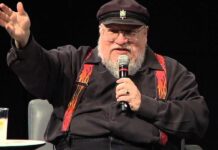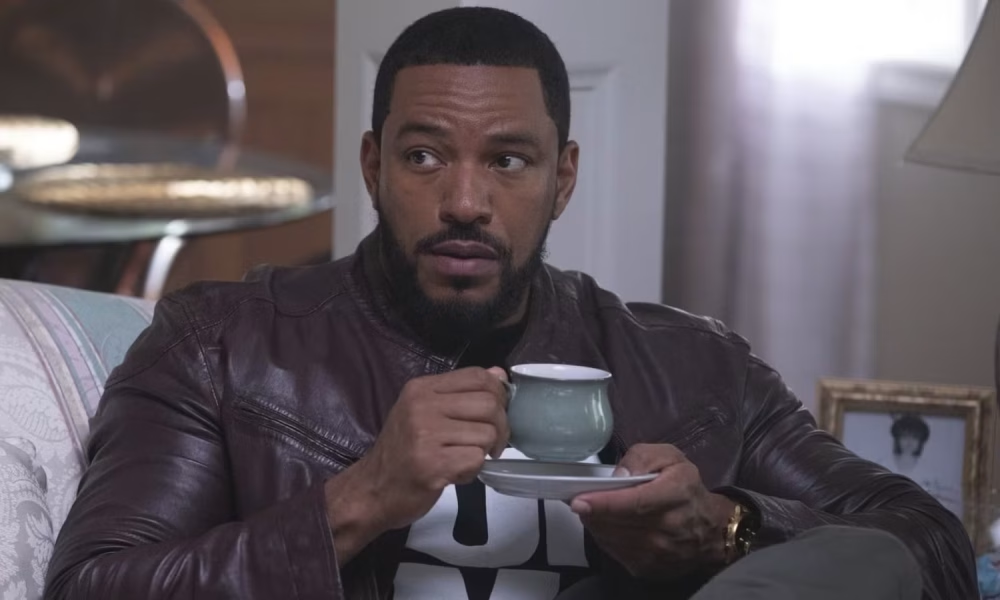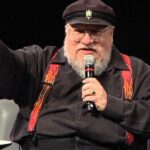Casey Bloys isn’t worried.
Other people may be wringing their hands over the future of HBO: How will it fill the hole left by “Game of Thrones”? Can its “only on HBO” brand survive under the “more is more” mandate of AT&T? With so much talent, including “Game of Thrones” creators David Benioff and D.B. Weiss, making deals with Netflix and Amazon, does that brand even matter anymore? Is HBO’s 20-year reign over the art form
formally known as television coming to an end? And if so, what hope is there for any other legacy platform?
Oh, and can someone please explain what HBO Max
is, and will it come free with an HBO subscription?
Yes, many people are worried about HBO. But after three years as HBO’s head of programming, much of it spent dealing with an ownership switch, Bloys, 47, does not appear to be not one of them.
Whether or not he screamed into his pillow when Benioff and Weiss told him their plans for ending one of the biggest shows in television is unknowable. Of their Netflix deal, he says that HBO dropped out of the bidding “fairly early on, when it became clear their ask did not make economic sense for HBO or WarnerMedia.”
Beyond some finger crossing for Emmy night, Bloys is not concerned about “Game of Thrones.” He’d rather talk about how everyone is finally discovering how great “Succession” is, or the unexpectedly wild excitement over “Chernobyl.” He’s happy to discuss the youth-skewing success of “Euphoria,” or HBO’s first dip into the comic book universe, with
the upcoming “Watchmen,” or its first collaboration with Stephen King —
even though “The Outsider” won’t premiere until 2020.
Jared Harris in “Chernobyl” on HBO.
(HBO)
People have always monitored the fate of HBO with the anxious intensity usually reserved for sports teams or the auto industry. Bloys, who has been at the network for 15 years, is happy everyone cares so much, but he is not fretting over the future.
He’s excited.
He dismisses concerns that AT&T, HBO’s new owner, is
forcing a mass-production mind-set onto a platform known for bespoke television. Yes, the recently announced 2019 fall slate —
the first made up exclusively of shows
developed during his tenure as programming chief —
reflects a 50% growth in programming hours. But as he has said repeatedly, that was the plan long before AT&T’s takeover of Time Warner.
“We needed more programming,” he said in a rare 90-minute
interview. “That was very clear. The growing number of digital subscribers can turn you off very quickly. You can’t have two shows a year and imagine people will sit by and wait for them. You have to have more.”
But that doesn’t mean he believes in binge-buying. There may be a small increase in 2020, but
beyond that, he says, increasing HBO’s programming hours might be tough, and there has been no pressure from AT&T to do so.
“We’re never going to approach the volume of the streaming services. I don’t think we could, and it’s not what we do.”
Still, the network is not oblivious to the competition. HBO’s new “recommended by humans” ad campaign is an obvious attempt to differentiate itself from the algorithmic recommendations generated by Netflix.
For those wondering what HBO will look like under AT&T, Bloys points to the 2019
slate, which reflects the network’s attempt to broaden its diversity on all levels. Once the land of the white male lead, HBO is following Zendaya-led “Euphoria,” which gave the network its youngest-skewing audience ever, with “Watchmen,” starring Regina King; Robin Thede’s “A Black Lady Sketch Show”; and “Our Boys,” which examines Israeli/Palestinian hostilities.
“Succession” and “The Deuce” will return, the latter for its final season, and “The Righteous Gemstones” comes from longtime HBO partner Danny McBride. But just as “Watchmen” marks HBO’s first attempt at a comic book adaptation, “His Dark Materials” may be the first HBO show a 12-year-old
could watch, and “Los Espookys” is certainly its first Spanish-language horror comedy.
Also coming soon is a second season of “My Brilliant Friend” and HBO’s first Stephen King project, “The Outsider.”
“There is nothing on the air that I wouldn’t have made five years ago,” Bloys says. “I wanted a slate. I wanted world-building shows, like ‘Watchmen’
and ‘Westworld,’
but I also wanted shows that did not rely on special effects and take two years to come back to air, beautiful shows with a small, dedicated audience and shows that reflect the world we live in.”
An HBO show, he adds, will never “exist just to exist.”
As for the increased competition for talent, especially from the deep-pocketed Netflix? HBO, he says, is still HBO.
“I wanted ‘Dear White People,’”
he acknowledges. “I wanted ‘GLOW’
and ‘What We Do
in the Shadows,’ but we were hamstrung during the change. Ninety percent of the time, if there’s something we want, if we are competitive, we’ll get it.”
No, Bloys is not worried at all, and though it is his job to be reassuring — he recently spent much of his executive session at TCA deflecting criticism about “Game of Thrones’”
final season and addressing
a report that “Big Little Lies” director Andrea Arnold lost final creative control of the project to writer David E. Kelley and Season 1 director Jean-Marc Vallée — he is very convincing.
Though
he is upbeat, characterizing the AT&T takeover, with its infusion of cash, as “only good for programming” and saying the increased pressure merely has him wondering “what exactly we did 15 years ago,” many people remain concerned, reading into
TV’s future by scrutinizing
every turn and twitch at HBO.
Even with increased production, HBO remains slow-grow in comparison with virtually every other platform. And, as any television creator can tell you, it gets harder every year to rise above the noise.
HBO has long prided itself on offering its creators the kind of freedom they could not find elsewhere, as well as
an ability to market shows, with big premieres, events and publicity campaigns, especially during awards season.
Now, Netflix and Amazon are following the same model. When Netflix won as many awards as reigning champ HBO at last year’s Emmys, some read it as a sign: Not only was broadcast TV dead, but premium cable was faltering as well. This year, HBO is back on top. But with “Game of Thrones” and “Veep” making their victory laps, what about next year?
Likewise, while 2019 and 2020 may reflect the plan Bloys and his team already had in place, John Stankey, now chief executive of WarnerMedia, held a town hall at HBO’s New York headquarters last summer during which he made it clear there was a new sheriff in town who
desired more programming hours a day, “not hours a week” or “hours a month.”
To many,
the announcement earlier this year that Richard Plepler — HBO’s longtime chairman, chief executive and “bespoke” TV advocate — was stepping down was the algorithmic writing on the wall.
Would the network that for decades has lived up to its own “only on HBO” brand more often than not become another hodgepodge of “throw everything against the wall and see if ‘Stranger Things’ sticks” programming?
“We live in a world of volume, where more is better,” says Robert Greenblatt, the former head of NBC Entertainment who Stankey chose to become chairman of WarnerMedia Entertainment, “but that [town hall] was so exaggerated. There is no gun to anyone’s head to double or triple the number of shows.”
HBO, he says, “is so important to this company in so many ways. It’s the bedrock of HBO Max and a worldwide brand that stands for quality. And in spite of how dominant volume has become, it still stands out by making shows that are both culturally significant and popular.”
Greenblatt, who worked with Bloys when he produced “Six Feet Under” for HBO, says he gets involved in decision-making only “at the level the staff wants me to get involved.” So while he talks with Bloys about ideas and casting, and brought “Gilded Age,” a show he had been working on at NBCUniversal, to Bloys’ attention, the programming decisions are Bloys’ alone.
“I have absolute faith in him,” Greenblatt says.
Bloys, in his turn, speaks highly of Greenblatt. He loved working with Plepler, but the fact that he and Greenblatt had already worked together has made the transition much easier. He cannot speak to HBO Max, which is Kevin Reilly’s baby. But no one thinks the linear HBO will be replaced, or for that matter changed in any way, by the new streaming service.
Jeremy Strong, left, and Brian Cox in a scene from “Succession.”
(Peter Kramer / HBO)
Bloys, for one, is still in love with traditional episodic television.
“Why would you give up the weekly episode release?” he
asks, pointing to the word-of-mouth growth of both “Euphoria” and “Succession.” “To have people united watching and talking about these shows. To give the audience numerous chances to connect.”
So what is an HBO show in the new world order? “What it always was,”
he says. “Great writing, great cast, great direction. And context. Our shows will never exist just to exist; they all have something to say about the world.”
He once again points to “Succession.” With no big stars and a cast of unlikable characters, “Succession” premiered to solid reviews but no discernible
buzz. Slowly, it began to gain
momentum and wound up with an Emmy nomination for
drama series;
its second season is on everyone’s must-watch list.
“Succession” was also Bloys’ first personal wish fulfillment. When he became program chief, he wanted a show about a modern family that would resonate with the times. “Succession,” about the machinations of a powerful Murdoch/Redstone-like family, fit
the bill, and when it was cast, Bloys and producer Adam McKay decided against big name stars à la “Big Little Lies.”
“We could have. With Adam directing, a lot of big stars were chasing it. But we decided to find the cast we wanted and make them stars. Why not? So we decided to do it the old-fashioned way, the HBO way.”
“At HBO, we make our own stars.”




















![[Book Review] The Blade Itself (The First Law Trilogy) by Joe Abercrombie](https://bendthekneegot.com/wp-content/uploads/2018/01/1516047103_maxresdefault-218x150.jpg)
















